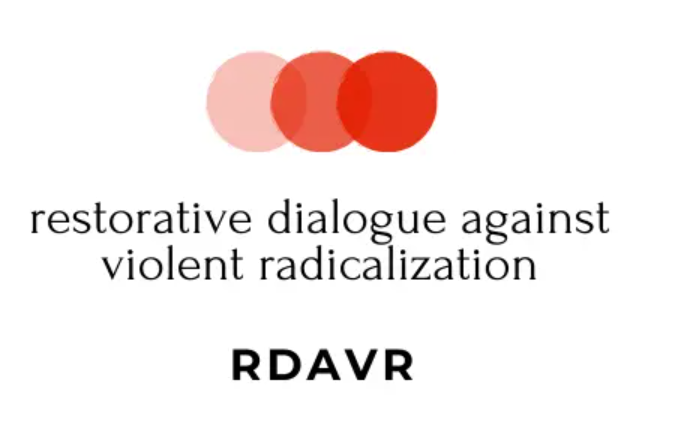The escalating phenomena of violent radicalisation, extremism, and nationalism across Europe demands innovative approaches to prevent young people from engaging in these activities. As a part of RJ4All's broader initiative on Preventing & Addressing Violent Radicalisation and Extremism, the Restorative Dialogue Against Violent Radicalisation (RDaVR) project emerged. Funded by Erasmus+, RDaVR stands as a unique venture rooted in the principles of dialogue and restorative justice, aiming to prevent radicalisation among young individuals across Europe.
RDaVR drew upon the collective expertise and experience of seven organisations across six Erasmus countries. This collaborative effort resulted in the development, piloting, and dissemination of an innovative model designed to enhance the knowledge and confidence of professionals working with individuals at risk of radicalisation. The central focus of the project was on criminal justice professionals dealing with offenders, ex-offenders, or those at risk of violent radicalisation.
The primary objective of RDaVR was to introduce a positive policy prevention approach, incorporating restorative justice and dialogue methods as tools to prevent individuals from resorting to violence. Recognising the pivotal role of criminal justice professionals, the project aimed to inform them on how to approach and offer alternatives to those at risk.
The original research conducted as part of RDaVR identified resilience, prosocial identities, and community engagement as key outcomes and results. These elements emerged as crucial tools for diverting individuals away from violence, providing them with a space to express concerns and frustrations that they might have.
RDaVR employed a comprehensive methodology that included fieldwork and interviews with practitioners, ex-offenders, and victims of violent radicalisation.
This approach allowed the project to gain a nuanced understanding of the needs and perspectives of those involved. The insights gathered were instrumental in the development of a robust training programme and a handbook for practitioners working with individuals at risk.
The training programme, developed based on the Good Lives Model and Positive Psychology, was piloted with criminal justice professionals in all participating countries. Additionally, it was transferred to an online platform as an e-course, enhancing accessibility and reach. The programme focused on nurturing the talents and strengths of individuals, fostering resilience, and developing pro-social value systems.
To consolidate research findings, methodology, and results, RDaVR culminated in the creation of an e-book. This comprehensive resource serves as a repository of knowledge, ensuring that the valuable insights garnered throughout the project are accessible to a wider audience.
RDaVR not only addressed the urgent need for preventing radicalisation but also offered a paradigm shift in how society approaches the issue. The lessons learned from the project emphasised that fostering resilience, prosocial identities, and community engagement are powerful tools for steering individuals away from violence.
The positive policy prevention approach advocated by RDaVR highlights the potential for transformative change, encouraging practitioners to view individuals not as risks but as individuals with the capacity for positive growth. As practitioners engaged with restorative justice principles, the project set the stage for a more inclusive and proactive response to the complex challenges of violent radicalisation and extremism.
Sophie Sideridou is a Research Coordinator and Restorative Justice for All (RJ4ALL) Europe Manager

